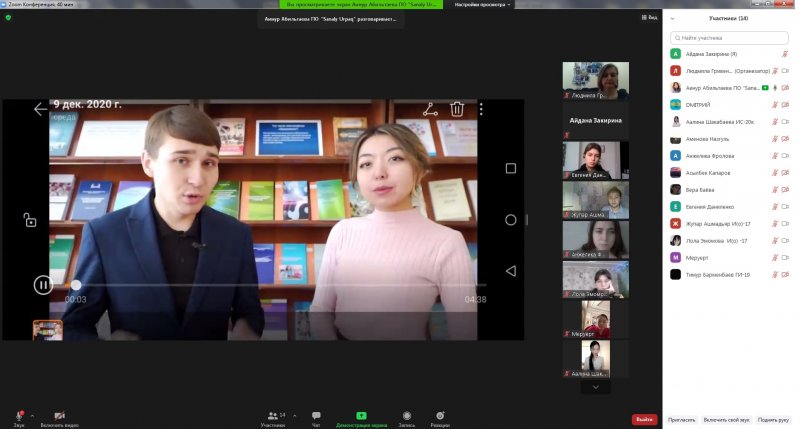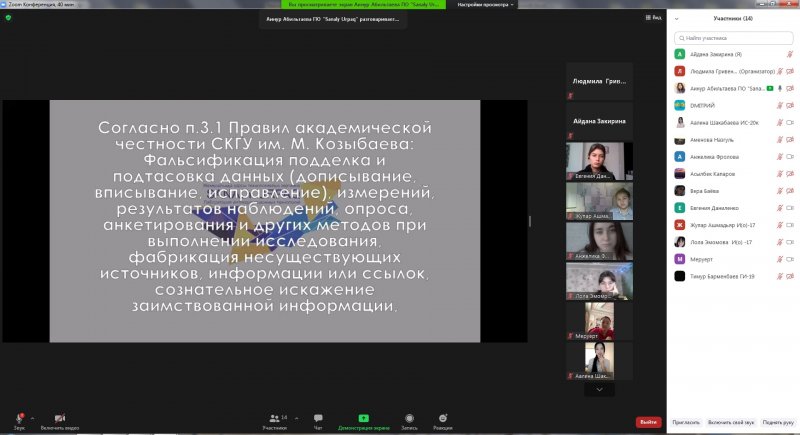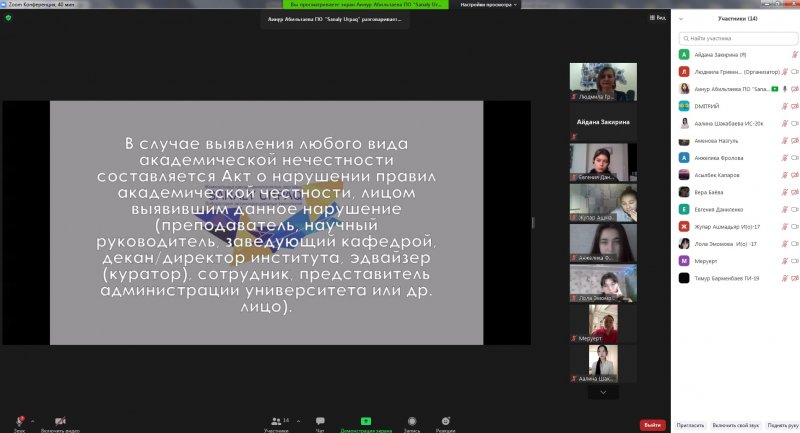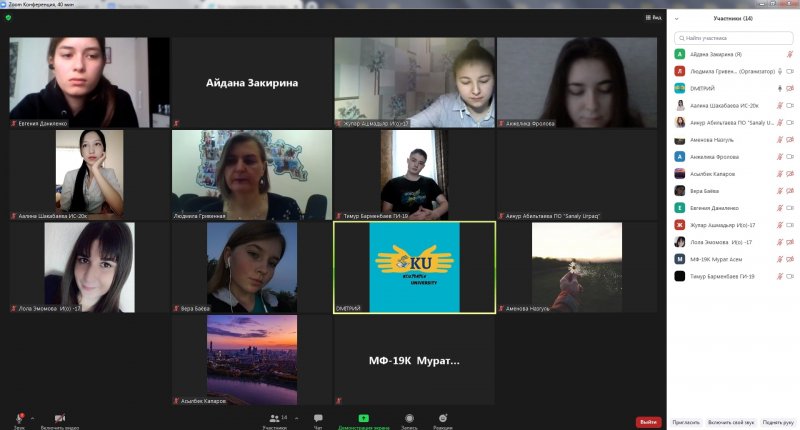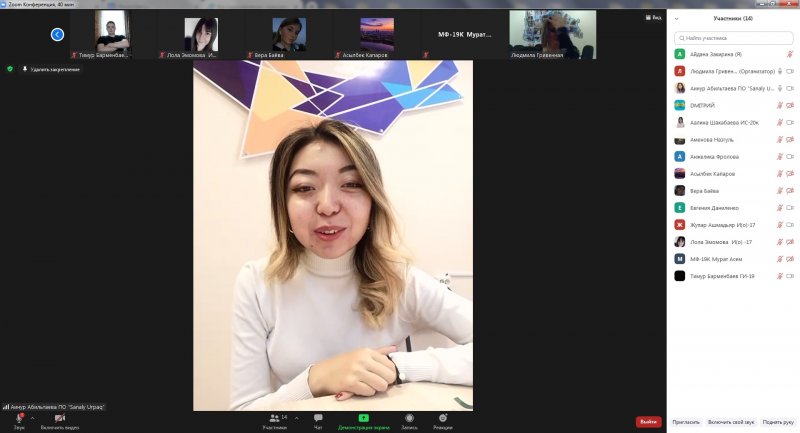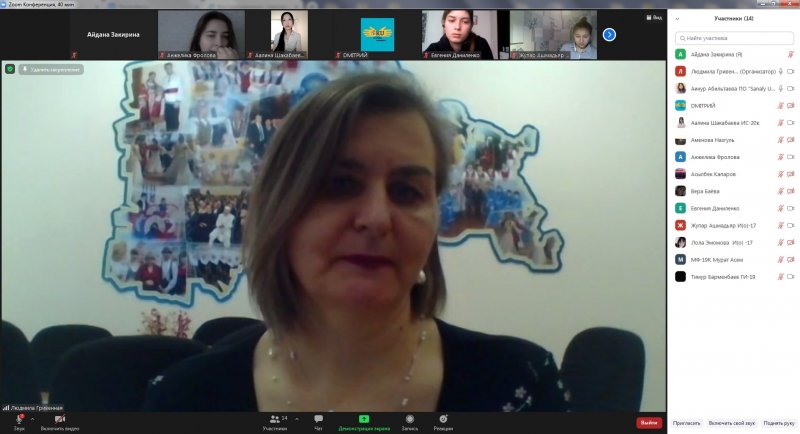Quotation gallery
Get over the idea that only children should spend their time in study. Be a student so long as you still have something to learn, and this will mean all your life.
University Students Discuss Academic Dishonesty
On the international day against corruption, the "Assembly of the People of Kazakhstan" department, together with the project office "Sanaly urpaq", conducted an in-depth interview for the university students in the format of a focus group on the topic: "Academic honesty: student - teacher".
During the discussion, students named such types of academic dishonesty in general among students as: falsification of grades, the use of cheat sheets, phones and other devices to cheat information on the exam, help from outside, the provision of fictitious certificates for working off points and transferring exams, impersonation, bribery, use personal connections to increase rating points, collusion, plagiarism.
Among teachers, students attributed to manifestations of academic dishonesty: corruption, bias in scoring, plagiarism, writing coursework, diploma and master's theses for monetary reward, tolerance for the use of cheat sheets in the exam, silence about bribes from colleagues.
The focus group participants associate the presence of academic dishonesty among students with the mentality and upbringing in the family, laziness, desire to get a high rating, disinterest in a future profession, lack of time, part-time jobs, idle time, and among teachers - with greed, lack of principle, family problems. impunity.
All participants noted that it is necessary not only to fight against academic dishonesty, but also to carry out preventive work. This is necessary for the formation of qualified specialists and the further sustainable development of the country.
The focus group participants referred to methods of struggle and prevention as: identifying and punishing teachers and students who violate the Rules of Academic Integrity, transparency, public censure, preventive conversations, contests, trainings and questionnaires.


